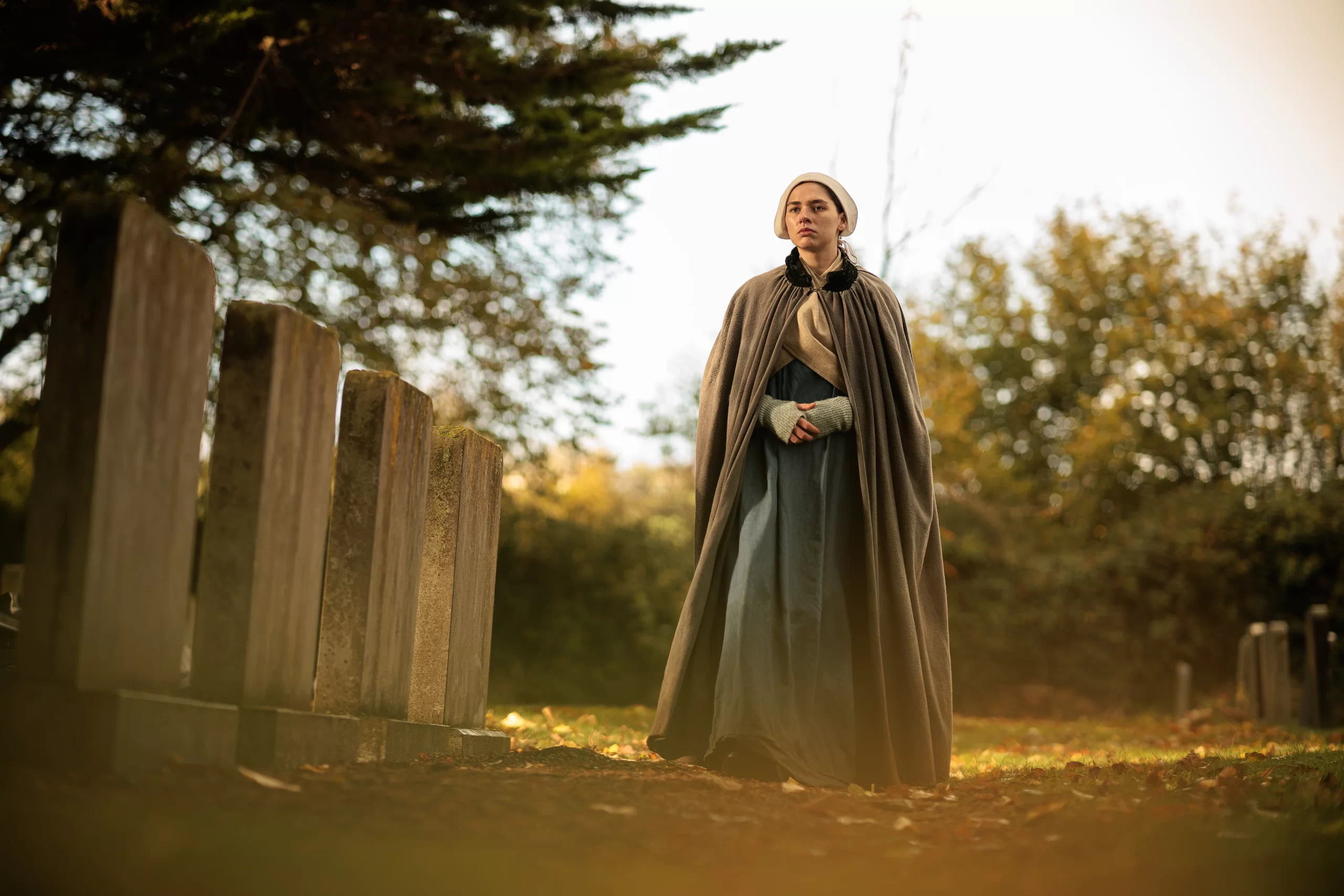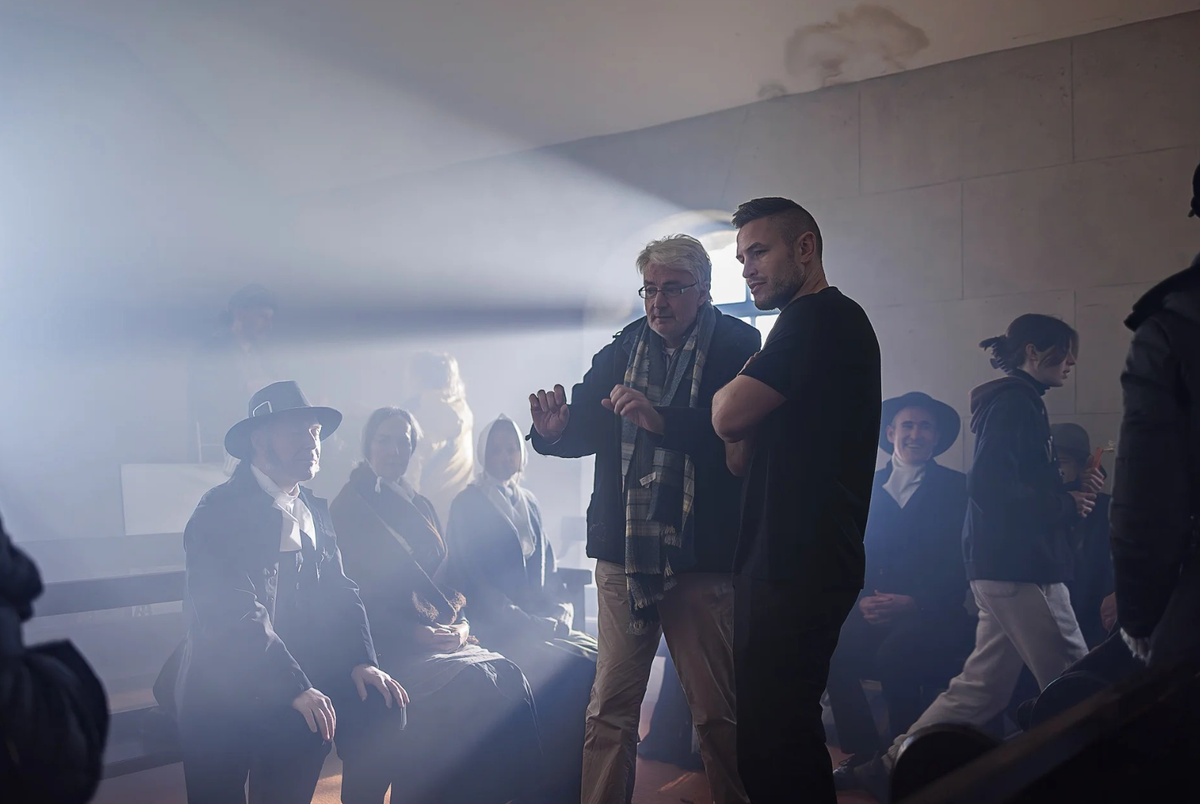In this article, Assistant Editor Dev Murray sits down with filmmaker Denis McArdle, who penned short film Koji's Courage which has just secured funding from the National Talent Academy for Animation. Fresh from winning Best Director at the Naas Film Festival for his latest short, The Light Within, Denis reflects on his career and estimates that the risks we face don’t diminish with experience.
(Featured Image Still by Daniel Geesen).
“In filmmaking, we risk our reputations, losing face, we risk the faith of our investors and jeopardising the budget. We endanger losing our way in the narrative. It’s part of the seduction that remains knife-edge in a risk-averse world. Funding agencies refuse to countenance, but without risk, there is no magic.”
That principle would define the career of one tenacious filmmaker. In 1989, a young Dubliner with big aspirations made a film titled Beyond Reach in his hometown of Dún Laoghaire and it received the rare distinction of a cinema release. Over the years since, Denis McArdle has honed his craft with award-winning festival favourites and powerful, character-driven documentaries that have played in cinemas all over the world. Helming sets both large and small, Denis built a reputation for beautiful, aesthetically bold and emotionally truthful work that hit home with audiences and juries alike.
His 2003 short, Burning the Bed, featuring Aidan Gillen and Gina McKee, was a searing character study, screened at over 40 festivals worldwide. It featured in cinemas nationwide ahead of the romantic comedy A Lot Like Love.
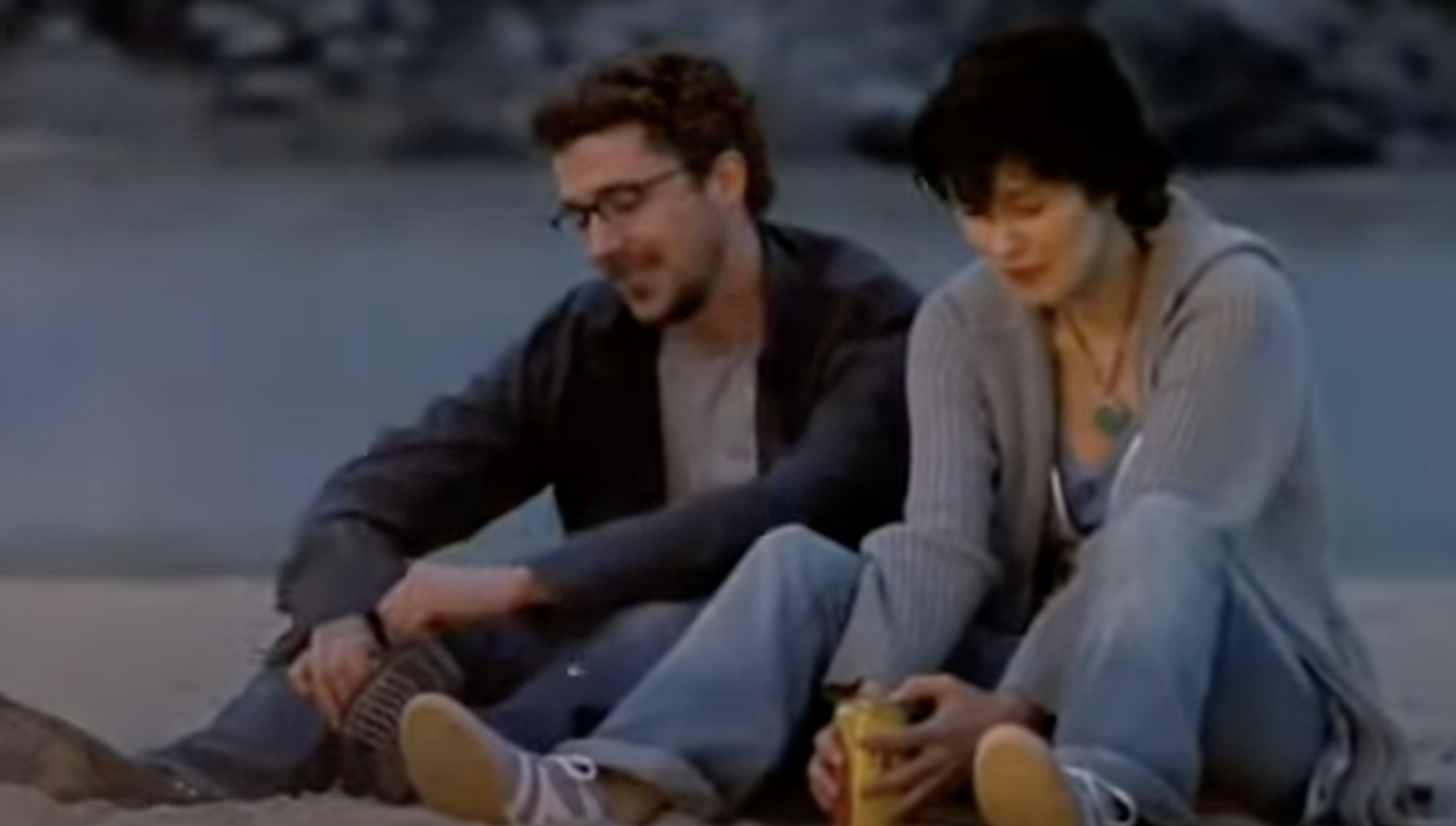
In 2012, Barry’s Bespoke Bakery went even further, collecting a string of impressive awards, notably winning the ‘Spirit of Gaze’, at the Dublin LGBT film festival and Best Screenplay at the Fastnet Film Festival. It’s a lively, odd couple drama, characterised with two wonderful actors, Michael Bates and Steve Gunn sparking off each other, and contains a beautiful denouement.
Opening Frames
Before all of this, Denis’ first break came when he was still in college, somewhat unexpectedly. He met the renowned production manager Jack Phelan, a former army captain, who ran his film units with military precision. Denis cites his mentor’s attention to detail as astonishing. “Captain Jack was a natural storyteller and larger than life. I was favoured by his largesse. I knew nothing, but he saw something in me, he gave me a platform, risking his reputation in backing me.” There were a few raised eyebrows at allowing this kid with spots to helm a seasoned crew. Jack introduced Denis to the world of directing through television commercials, which became a proving ground to learn the geography of the camera, lenses, space and performance. “It’s a profession in which loss of innocence is the price of admission. Tendering was fraught, sparse and well-earned.” Denis was immersed in a professional crew early. “The learning curve was immense. My shots were marked by the folly of youth. I made a catalogue of mistakes and errors… Going beyond 6pm even by a few minutes meant the schedule was penalised with overtime for the crew, so they often slowed down in the afternoon, hoping for the bonus. I learned about the loyalty of my choices. “I could hear the clock ticking away all the finance, the resources dwindling with every clap of the clapperboard.” Ultimately, this discipline grounded Denis in the economy of vision, and it informed his efficiency for years to come.
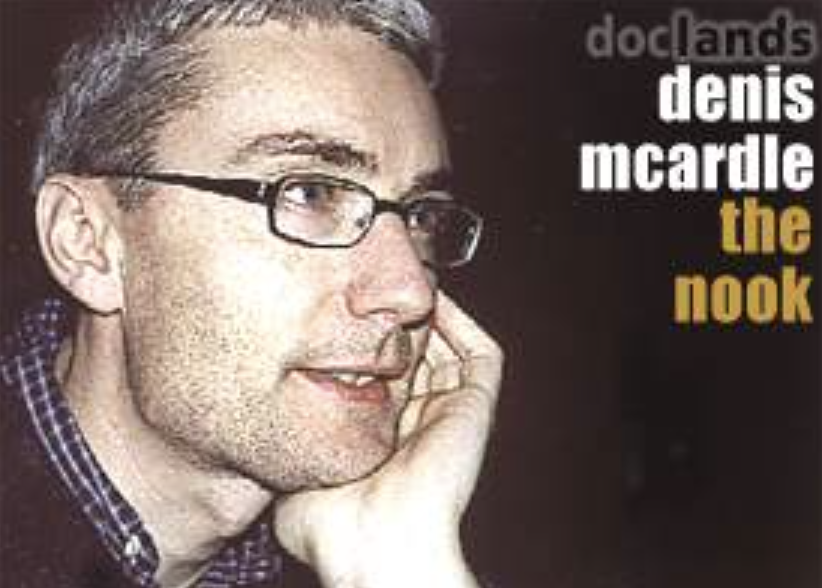
My deepest learning has been, of course, to trust my voice.
For seven years, Denis worked on and off as a commercials director, while also moonlighting on his creative film shoots. On occasion, he could be found after midnight in the kitchens of ethnic restaurants, wrangling a cast of Mexican extras to appear in some Godforsaken location the next day, beseeching farmers emerging from church in their Sunday best to part with a flock of sheep, persuading fishermen at harbour walls to angle their trawlers into the sun, or photographing an oak tree in the snow before driving to Skibbereen with the results. “This was all before the internet or digital photography - old school, certainly, but an essential and invaluable apprenticeship,” he adds.
With aspirations to become a documentarian, Denis went on to produce and direct several documentaries. However, it’s The Nook (2000) that became a personal favourite, as mentioned in Issue 2 of Film West. Shot over several years on 16mm, Denis captured the eccentric life of his neighbour, shopkeeper Martin Lysaght. “It’s Martin’s character and charm that make the piece, but many times during the shoot and even during the edit, I didn’t know if it was going to work.” There’s a powerful truth that radiates from The Nook - the intangible thing that makes his work so distinctive.
The next stage in the practical process of directing, increasingly, Denis prefers the discovery rather than nailing a result. “I fight for space to allow the invisible to occur. Rehearsal is so beneficial and undervalued. We are magicians conjuring images from velvet cloaks. Only self-trust silences the committee of inner voices, all shouting to undermine confidence and, for me, the loudest voice: ‘Why aren’t they all doing what’s in my head?’”
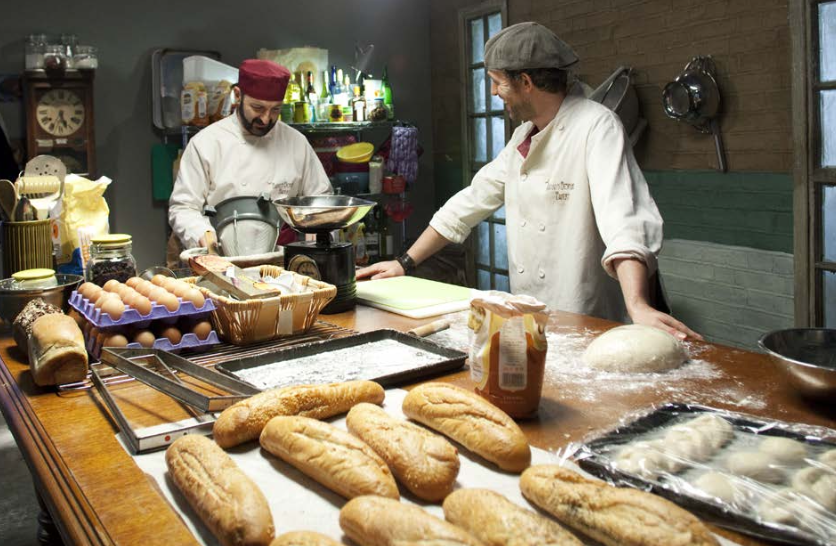
Watch Barry's Bespoke Bakery here.
A Career on Pause
Despite career highs any filmmaker would envy, Denis’ occupation was suddenly and somewhat tragically curtailed. “In my thirties, I risked losing my way,” he answers honestly. “I was balancing my budding career with caring for a profoundly infirm parent, and I lost opportunities, both professional and personal.” In today’s industry, an honest statement outlining the challenges of caregiving would strengthen a funding application. Back then, however, the realities were stark and isolating. Denis admits to suffering romantically from the losses that his circumstance had taken from him. “I resented the opportunities that my mother’s illness robbed from me and I have been catching up ever since. It took me years to reconcile that this sacrifice would winnow my sense of self, my perspective and deepen my practice. Directing drama should reflect lived experience.”
Making a film, with all its torture, is a walk in the park by comparison to the caregiving of a loved one.
The Director’s Cut
Since making the choice to walk away from the world of TV commercials, Denis gravitated towards creating short drama films and some experimental work, not exclusively, but he admits to growing to love the art form. “At their most aspirational, short films capture a moment of starlight like smoke caught in the beam of the film projector. We chase light and shade, fuelled by coffee and cigarettes. We live on vapours. My film scripts tend to be subtle, wounded creatures. I favour nuance and exploring what is unsaid or deflected in dialogue and behaviour. My job is to photograph the subtext.” He notes that film school doesn’t teach the tools of subtext. Short filmmaking is a crucifixion. It represents a true art form, navigated without any recourse to money, in the hope of capturing lightning in a bottle.”
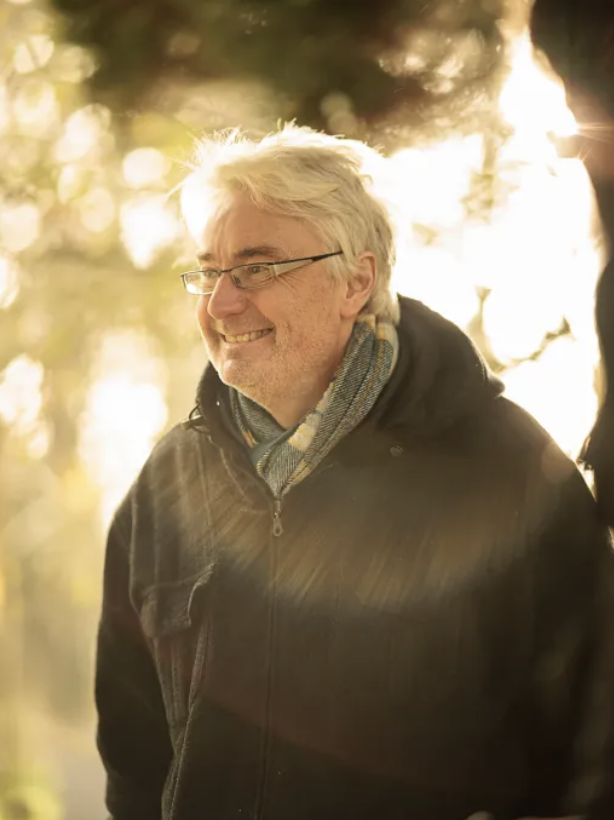
Some stories just come easier; there is a flow, the stars align, chemistry and craft harmonise. Others are highly constipated affairs.
When it comes to his own productivity, Denis notes a distinct pattern: five years writing, developing, endlessly waiting, staving off rejection and disappointment, “then finally an opportunity arises that I must grasp and clutch to my chest. So I am not prolific. I like to tackle a different genre with each project.” This might mean a comedy set in a bakery, a couple separating on a beach, the wonder of a child first hearing jazz, or a Quaker family in 1780.
Trust the Process
The administrative elements of filmmaking are not quite so inspiring. These days, he admits to feeling something of a professional applicant. “Almost all my time is devoted to submitting paperwork, and it seems to be getting worse. I have expensive tastes in terms of story and aesthetic. I’m more Out of Africa than Trainspotting. You can just imagine how my producers have responded with their heads buried in their hands at ameliorating my ambition.” And yet he notes the most enjoyable time as a filmmaker is that twilight hour when a project has just been funded. “I’m high on the win, but nothing is yet in place. In my mind, it’s a perfect, shining thing. Then I entertain the broad strokes, reality crashes in and the vision mutates into a pale visage.” From then on, it’s a poker game of compromise...
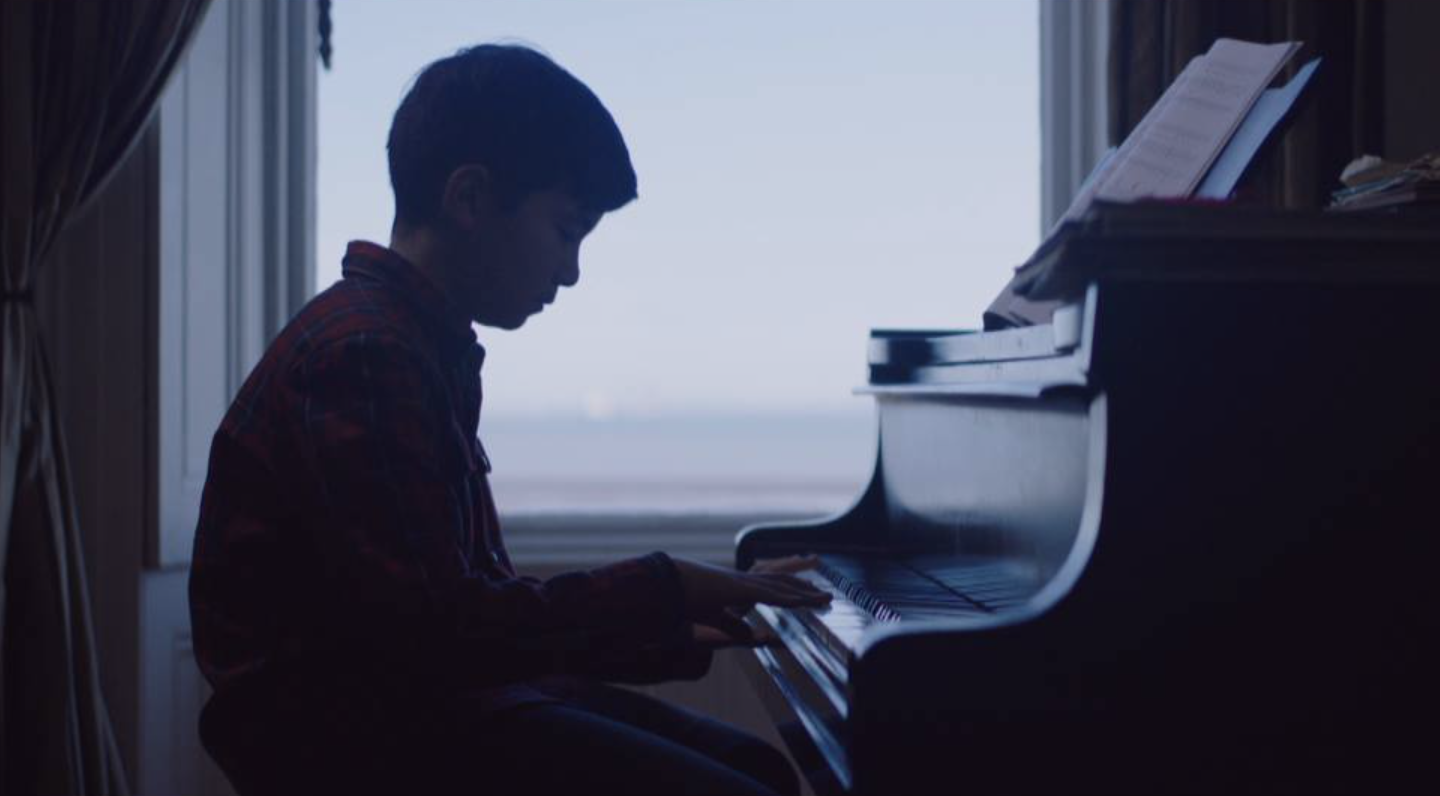
Watch the trailer for The Silver Lining here.
Work in Focus
Supported by the SDGI’s ARRI Alexa Take scheme, The Silver Lining - a short narrative where a young boy covets a timeworn trumpet from an irascible antique dealer - was filmed in 2019. This was an easy shoot, and Denis references it akin to “a home movie made with friends in a local antique shop in my own neighbourhood. I was working with a wonderful child actor, Oisín Murphy, essentially performing as me at ten years of age, holding his own with Lalor Roddy. I’m so proud of those performances.” It was a disappointment, however, when the film stalled during the pandemic and was never properly released.
The most important film Denis has worked on, has been his most recent, The Light Within: An Irish Quaker Story (2024). “For me, it’s imbued with a subtle Quaker ethos of compassion, simplicity, and a history that had never been dramatised.” This was the most ambitious short Denis has made, and for the least money. “There were several exigencies that made this shoot extremely challenging, but they were even more rewarding when overcome. Firstly, it’s a period drama with difficult exteriors - a winter shoot in almost relentless rain.” Narratively, the relationships within the story are timeless, a family drama exploring the dynamic between two sisters and their father. Denis notes how it was important that the dialogue and speech patterns be authentic to the era. “The actors loved the feel of it. I had long desired to create a costume drama, in some other time, and this opportunity let me draw from two of my favourites, John Schlesinger’s Far from the Madding Crowd and Peter Weir’s Picnic at Hanging Rock. This film required every ounce of my resilience, skill set and imagination to wrestle into shape, and I feel the accomplishment worthwhile, although I feel it’s almost too big for a short film.”
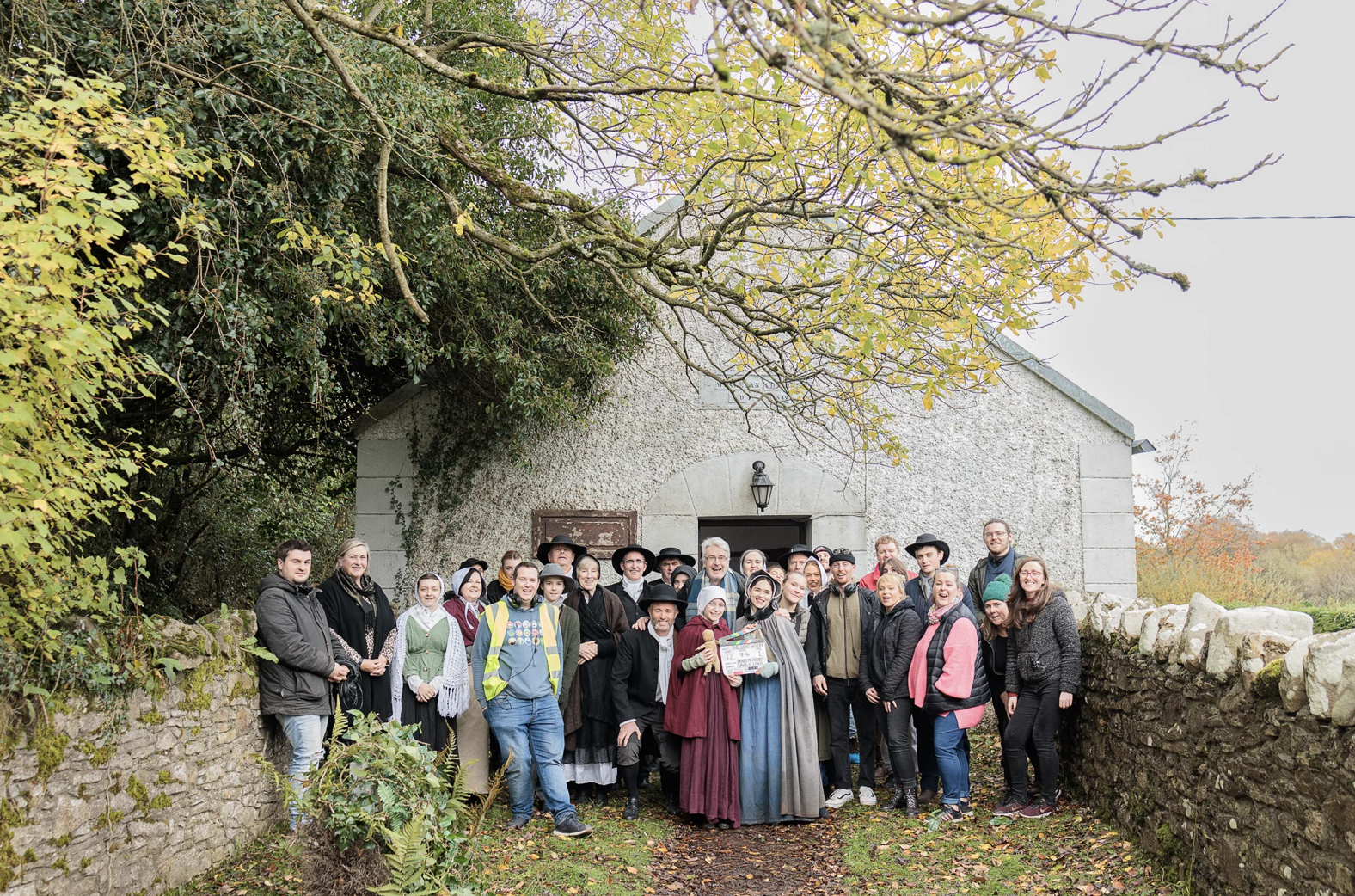
The Alchemy of Art
A great man for articulation, Denis reflects quite candidly on the less appealing realities of his craft and the profession as a whole. “I see my practice as both craft and art form equally. After 30 years on the fringes of the industry, I’m sanguine about the scarcity of opportunity, and that pressure is ever-present, from emerging talent to seasoned artists.” He acknowledges the emotional toll that comes with the territory too. “Directing demands enormous self-trust, which naturally ebbs and flows, especially in moments of self-doubt. The acceptance of failure is crucial to our practice, but we’re often reluctant to acknowledge the mixed blessing of failure in interviews.”
The perceived nature of the role of a director, from dictator to collaborator, has changed over the years, and Denis falls into the latter camp. “There is needless fear brought to a film in the name of ‘importance’. Importance fades with time. Measuring and ascribing it starts from my relationship with the material. Casting is always delicate and gossamer, even for smaller roles. This is where importance matters most. My approach is always in respect of supporting a happy crew, a safe space for everyone, from vulnerable actors to the rigger abseiling the scaffold. The concentration required to direct a film is ferocious. I rarely move the camera, preferring the action to play out within the frame. When shooting, you spend every minute fielding questions, the answers to which you may later regret. You must be flexible like the actors, in the moment, cognizant, open-hearted, ever grateful.”
And yet despite three decades of achievement, he laments how with every project there’s a moment of self-doubt about one specific set-up. At that moment, he questions everything: “With gnawing indecision, I suddenly feel I know nothing. I’m a nervous bride, and the risk seems more egregious, the stakes feel higher. Chasing the risk means holding communion with fear, and acting in faith. These are moments when your leadership can be eroded. The inner committee returns like screeching birds pecking at self-esteem. This is when self-trust is tested, risking from the wellspring of experience and all the unspoken things that led to this place. This is when risk matters most. Holding your nerve. Reaching out…”
This is, of course, where all the biggest risks are taken - and without risk there is no industry. There is no film. And there certainly is no magic.
The Light Within: An Irish Quaker Story screens at the Meath Film Festival, which runs from 13th - 14th September 2025.
